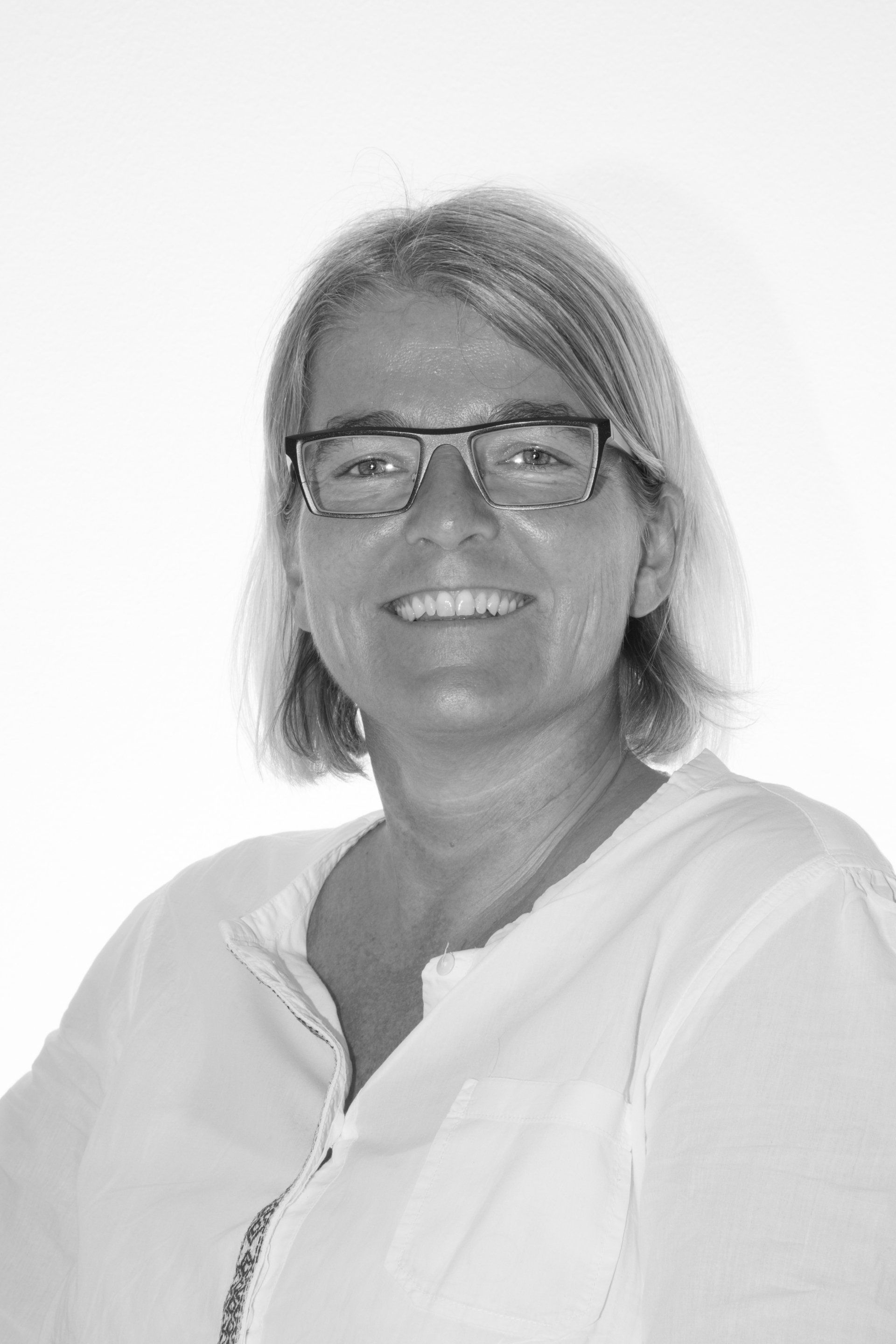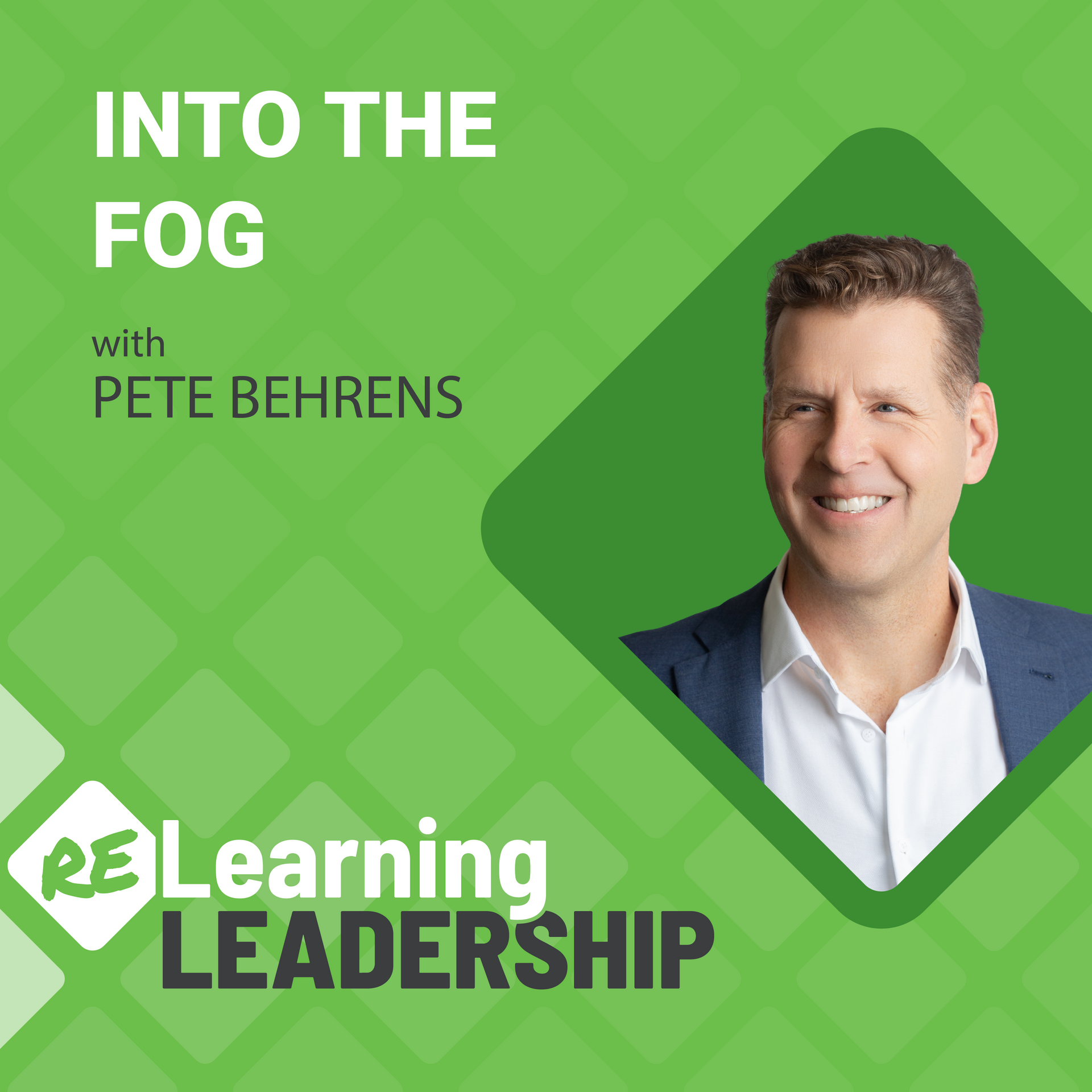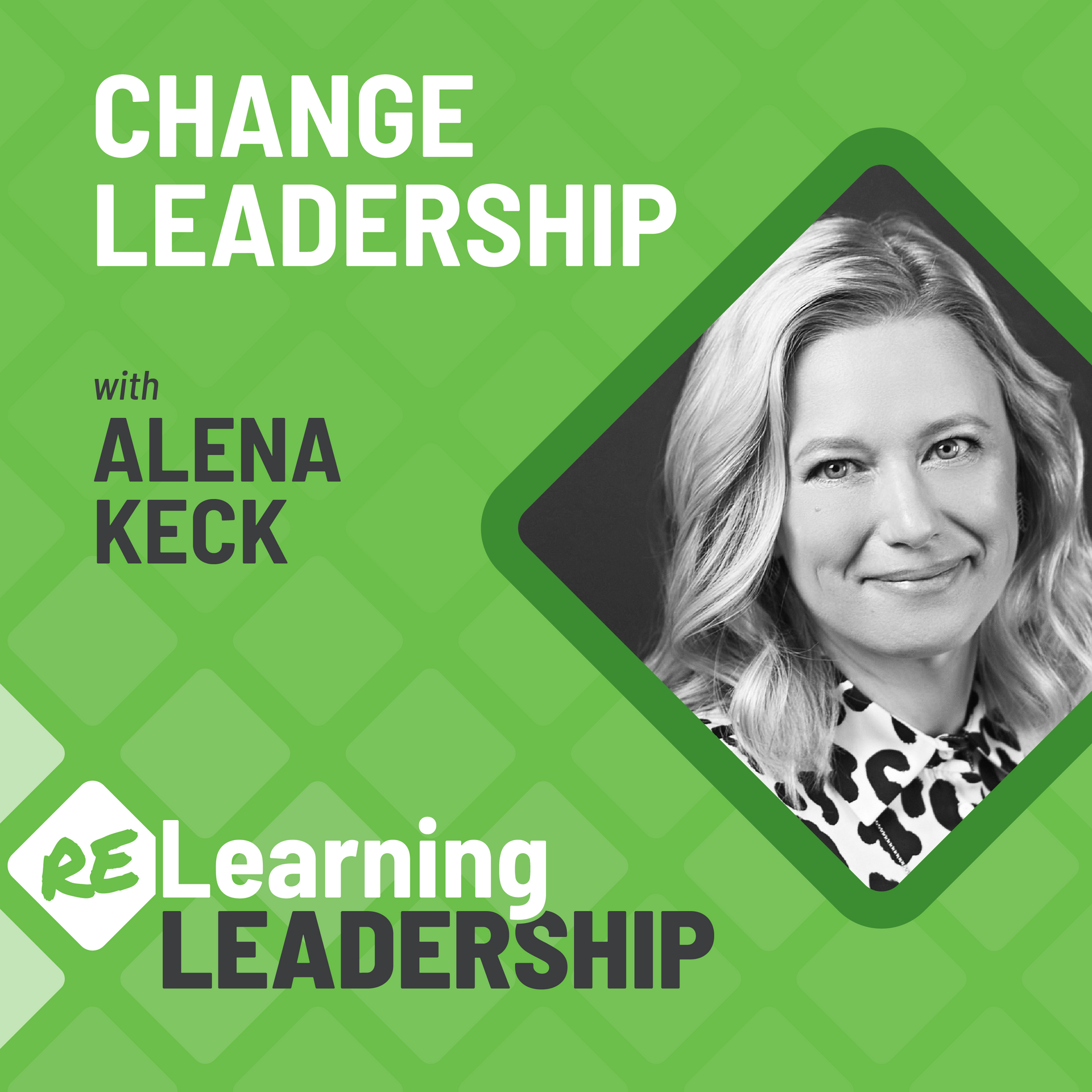22: The Illusion of Control
What does control mean to you? What does it mean to let go?
It is interesting to see and feel the complexity in letting go and why it is so hard for leaders to know what to let go of, what not to let go of, and how the illusion of control keeps us in tension.
In this interview, Mette discusses shaping her company’s culture through her conversations. Not just the formal PowerPoint presentations, but everyday language, connections, and relationships she is building. She isn’t merely letting go and abdicating responsibility. She’s letting go of one rope, only to grab on and persistently pull on another. She is aware of the illusion of control and explicitly shaping a culture to share it.
Mette Bjerrekaer, Head of Transformation
Mette Bjerrekaer (she/her) is a Senior Director and heading up the Transformation Office in Grundfos – an “Agile Endeavor” she embarked upon in January of 2021.
Mette is certified Product Owner and has a great interest in Leadership in general – she is very eager to find ways to nurture Growth Mindset and how to create the best possible environment for Creativity and Innovation.
She has personal experience from 10+ years of Global Project Management, leading several successful Global Product Development projects with large-scale business impact.
She also holds many years of experience in various Leadership-roles, both in Denmark and in China where she headed up the Grundfos Development function in Suzhou from 2012-2016, before moving to Shanghai as Director of Business development from 2016-2019.
Mette made a choice to stay positive no matter what – and she perceives every "failure" an opportunity to learn and improve. In her spare time she enjoys meditation, reading books, listening to music and podcasts. Her absolute favorite thing to do is spending time in her greenhouse and garden together with her two cats.
Connect with Mette

Bent Myllerup, Change Agent
Bent Myllerup is an Agile Leadership Journey Guide, Change Agent and Founder of Better Change.
Bent focuses on leadership development and organizational culture. He is a pioneer in Agile hardware development and have practiced leadership in this environment for the past 20 years. Leadership is navigating in unpredictability and coping with uncertainty about what will come. In many ways it is like steering a sailboat - a competence Bent also masters.
He holds a Master in Management Development (MMD) from Copenhagen Business School and a Bachelor in Science of Electronic Engineering (B.Sc.E.E) from Aarhus Engineering College. He has 20 years of personal experience in management and leadership. Five of those years were in traditional setups and the remaining 15 in various agile organisations.
He has various certifications and accreditations including Certified Enterprise Coach (CEC), Certified Scrum Trainer (CST), Path to CSP Educator and Approved Agile Leadership Educator at Scrum Alliance. He also holds a certification as systemic coach from an EMCC (European Mentoring and Coaching Council) accredited training program. Finally, he is also a guide under the Agile Leadership Journey.
Visit the Better Change Website.
Connect with Bent

Relearning from this episode…
I was drawn back to our pre-COVID days as I listened to the sweet voices of Danish speakers. It reminds me of Jana and my travels to Europe, especially visiting one of our favorite cities - Copenhagen.
It is interesting to see and feel the complexity in letting go and why it is so hard for leaders to know what to let go of, and what not to let go of, and how the illusion of control keeps us in tension. I know I am personally challenged with control and letting go, as our two guests.
In the episode, I shared a personal experience I had with Peter Block, an organizational and leadership guru, that I will never forget.
I asked some question about how to hold someone else accountable. To my surprise, he walked over to me, grabbed my arm, and asked me, “Can I hold you accountable?” It was immediately obvious to me the naivety of my question. Yet, he went on to say that in order to change culture, we need to change the conversation.
In this interview, I see Mette shaping her company’s culture through her conversations. Not just the formal PowerPoint presentations, but everyday language, connections, and relationships she is building. She isn’t merely letting go and abdicating responsibility. She’s letting go of one rope, only to grab on and persistently pull on another. She is aware of the illusion of control and explicitly shaping a culture to share it.
We Celebrate Joy Zimmerman’s Milestone
Joy Zimmerman, the creator of the music you hear on this podcast, is celebrating an award-winning album this summer. The Canvas Before Us reached Top #8 on the International Folk Chart!
Visit Joy Zimmerman Music
For this episode, I was drawn to Joy’s sarcastic number
Beware the Short Story. In it, Joy warns us of the quick and easy marketing way of words that gloss over the real facts. In her story, I heard Mette go deeper, show patience and persistence to avoid this dangerous trap. Hopefully, you can do the same.
Enjoy Beware the Short Story.

Episode Transcript
Pete Behrens:
Why do leaders need to learn that control is only an illusion?
Welcome to another episode of Relearning Leadership, where we explore a specific leadership challenge and break it down to help improve your leadership, your organization…and even your personal life.
Today, through two parts, we dive deeper into the concept of letting go to discuss the importance in recognizing that our sense of control is only an illusion.
Mette Bjerrekær:
You could always fall asleep at night because you had this plan on the wall…we have an illusion of control because we could see a plan. And now I have to find other ways to sleep at night.
Pete Behrens:
That is Mette Bjerrekær, Head of Transformation at GRUNDFOS, a water technology company based in Denmark. In Part I, Mette shares her story in overcoming the illusion of control with Bent Myllerup, a coach working with Mette and one of our ALJ Guides. In Part II, Bent and I discuss what we relearned from Mette’s story.
Bent Myllerup:
By letting go you are, in some way, losing the control. Or I would say you are losing your illusion of control, because control is an illusion. But you're still being responsible.
Pete Behrens:
I’m Pete Behrens. Thank you for joining us today. Let’s dive in.
Bent Myllerup:
So, hello! My name is Bent Myllerup, and today I’m the cohost on this podcast for
Agile Leadership Journey. And with me I have Mette, Mette Bjerrekær, that I'm invited to come and have a discussion with me. Thank you for coming, Mette!
Mette Bjerrekær:
You're welcome.
Bent Myllerup:
And Mette, if you could just start by saying a little about who you are and where you work?
Mette Bjerrekær:
Yes, of course, Bent! Thanks for inviting me, first of all. And then, a little bit about me. I’m Mette Bjerrekær. Danish, working out of a company called GRUNDFOS in Bjerringbro. Education-wise, I am a mechanical engineer, many, many years ago. Very fast, my career took me into project management. Projects in R&D, new offering development. And the projects took me from very small projects to bigger projects to very, very big projects, before I decided, after fifteen years of doing that, that I wanted to go into classical, hierarchical line management. Which I then have done ever since, you could say. Based in, right now, in our headquarters in Bjerringbro, which is in the middle part of Denmark. I have also spent six-and-a-half years in China, also with R&D. But also two-and-a-half years in sales in China. So that's a bit about me.
Bent Myllerup:
Yeah, so you have various backgrounds.
Mette Bjerrekær:
I do, yeah. Yeah.
Bent Myllerup:
Yeah. Super. And thank you for reminding me. It's been many years since I graduated, because I graduated a year before you! [laughter]
Yeah, yeah. Okay. So, Mette, you have chosen the topic for today. And the topic you chose was letting go. So, why is that important for you?
Mette Bjerrekær:
When we talked about it initially, Bent, it was this, about—okay, letting go, for me, is actually a lot of things. First of all, it was the default thing I wanted to talk to you about, because I think the journey I have been on for my entire work-life career—but then accelerated now, with GRUNDFOS, going on a journey of becoming a much more agile company—was the
letting go of the old habits. And by that, I mean, you know, what made my career great, what made me great, was probably the habits I developed over a lot of years. And now I have to let go of many of them. And then I have to find out which of the old habits is it, actually, I let go, and in what order do I do that.
Bent Myllerup:
Yeah. Yeah. What specifically—would you say that this awareness of letting go of old habits—how does that come out in the daily work?
Mette Bjerrekær:
Well, as a project manager—you know, iron triangles and Waterfall Plans, gave me and all the other project managers in the world, I’m sure, this sense of
“I'm in control. I'm even in control of what's going to happen five-ten months from now.” I can see you’re smiling now! We all fall into that trap, I guess. So, I guess the first part of letting go of habits is this—actually remind yourself at all times that nobody can actually predict the future. We can react to what we're in right now and then make that sure we don't—nobody has a crystal ball, right? So letting go of this false illusion of
“I know what’s going to happen from now.”
And becoming much better at actually adapting.” I'm almost reciting one of the Agile principles, I’m sure. But being better at adapting to the circumstances we are in right now. And then adjust our approaches to the future.
Bent Myllerup:
Yeah. Yeah. So, for your work as a leader with your employees, what would they say—if you ask some of your employees, what would be the change of the behavior?
Mette
Bjerrekær:
Well, if I could take myself back five years, you would hear me asking questions like,
“Okay, when is this done? When have we finalized that? What did the customer say?” So these “Okay, I had a plan, and we're going to follow that plan” kind of questions. Today, I'm more into asking questions like, “I wonder what would happen if we do this or that.” Or
“Have we thought about the value of the initiatives we're going into now?” So hopefully what they see now is a Mette that asks much more curious questions into,
“Okay, what could we do?”
Not “what should we do?” or
“What have we done?”
Bent Myllerup:
Yeah. So a Mette that is less concerned about following a plan and more concerned about,
“Does it actually provide value, what we bring?”
Mette Bjerrekær:
That's a good way to summarize it, Bent. Letting go does not mean that you just don't care anymore, right? So striking this balance of—there are still business objectives that we are here to make. But having this, you know—okay, dare to let go of the illusions of “I know everything.” Because nobody knows everything. And then maybe to the topic of what I have found, that the the worst habit, or the habit that I loved the most, maybe, right? That if I interfered, I could always fix something. Letting go of that habit is probably where I am right now in my leadership journey.
Bent Myllerup:
Yeah. So, Mette, I heard you say something about being aware of the illusion of control. So, do I also hear a Mette that is more aware of uncertainty and unpredictability, compared to before?
Mette Bjerrekær:
Yeah. I don't think I've ever been afraid of uncertainty and things not being predictable. But—I don't know how to put this—maybe, you could always fall asleep at night because you had this plan on the wall. It gave you this,
“Okay it looks like we're going to make it, or if we're a little bit lucky, or whatever it is, if we have a lot of tailwind, I could see it somehow.” And that is probably what—like many people like me, leaders who have been trained in that way, actually have this—I wouldn't call it
false control. But we have an illusion of control because we could see a plan. That could make us sleep at night, myself included. And now I have to find other ways to sleep at night. And that is probably back to what your question was, about embracing the uncertainty. Actually just say to yourself,
“Well, did I do my best? Did the team—did everyone actually do their best?” Well, then let go of the uncertainty. Embrace it instead. If I remind myself everyday that, “Hey, 19,000 great colleagues in
GRUNDFOS
come to work every day to do their absolute best”, then that's a good starting point of embracing the—you know, I'm pretty sure we could
overcome almost anything together.
Bent Myllerup:
So, what would you say is important for the employees in order to be successful?
Mette Bjerrekær:
I can only use myself as an example, right? If I do that change with a snap of a finger, you know, I’m probably going to confuse a lot of employees. So, the employees, we—together, with us as a leadership team, we have to create a safe environment where you could say self-organized and empowered teams—you cannot just expect people to do that overnight.
I'm pretty sure, Bent, if I asked what you would need to feel safe, it would be overlapping, but not exactly the same as what I would say. So that's where we have to have an open dialogue. I often say to myself, and to the leadership team I'm in, “We need to talk with our people, not to them.” And that's a good way for me, actually, to remind myself that I have to be at eye-height with the employees I engage with to really understand what their needs are.
Bent Myllerup:
Yeah, so this whole idea about equity—right?—that, yes, people have various needs in order to feel safe.
Mette Bjerrekær:
Exactly. Yeah.
Bent Myllerup:
Yeah. That sounds like things that take a long time to do, doesn't it?
Mette Bjerrekær:
Yeah. And that's a spot-on question as well. My journey into Agile has been—if you had asked me these questions two years ago, we would have a completely different dialogue, right? But I think one of the biggest adjustments I had to do was this—taking 19,000 people or 600 people, where we have a starting point at GRUNDFOS. It does take time. And my old habit was just, “Okay, don’t talk to me about things taking too long a time. We just have to do this and this and this.” But it is much more than just a process change, where we can describe,
“I want this and this instead of that and that.”
Now we are talking about people and the whole way we actually interact together, the whole leadership of the company. And of course it takes time. Two years ago I probably would have said,
“Okay, how long, how difficult can it be?” But now, being diligent and having seen how you actually—by doing stuff like we're doing now, actually building trust, building a safe surrounding is not just something that you do overnight. And cognitively, of course I knew that, right? But now we're in the middle of it. It makes so much more sense, I’m sure, for everybody. I'm pretty sure I'm not the only one having been on that journey.
Bent Myllerup:
It looks so easy and also simple, at least. Yeah. Seems to me, like, also getting feedback and getting feedback fast and early, but from the market. But also building up a culture of giving and receiving feedback is important. Do you have some thoughts on that?
Mette Bjerrekær:
Yeah. I think talking to me two years ago, I would probably have said,
“Bent, we do have a feedback culture.”
Because feedback has typically been something that’s gone up and down the hierarchy, instead of peer-to-peer feedback. So I give feedback to you, and you give it to me. And none of us are managing each other. It's easy to give positive feedback. Anyone can do that, right?
“Bent, you're doing great! Just continue doing that.” But going into these dialogues of,
“Hey, Bent, this is probably not as good as we thought it should be.” So you can hear a completely different dialogue there.
Bent Myllerup:
Yes. You're addressing several things here. One thing is that you are, in many ways, addressing
The Five Dysfunctions of a Team by Patrick Lencioni, right? About trust. But also the fear of conflict and also about holding each other accountable. That's one thing. And the other thing I hear you address is this—what we call the
broken window syndrome, right? That, also, if we let go of something that we shouldn't let go of, it might lead to a dysfunction a little later. Because people would say
“Well, if this is allowed, well, then I can also…right?”
So this idea about—if there's an abandoned house and one window is broken, then suddenly all windows are broken.
Mette Bjerrekær:
Yeah. That's a good point, Bent. And that’s probably also where we are now, just to put it into the context of GRUNDFOS now. We deliberately started in one area of the organization. And they are now, really, getting used to Agile principles and working, you know, self-empowered, self-organized. We are not there yet. That's not what I'm saying. But I hear a lot of them now. It's close to 600 really cherished colleagues now. They are starting to see, you know, things would be much, much better if all the other functions at GRUNDFOS were not that broken, as you called it, right? Because their behavior is not that Agile. And that is, of course, what we then need to—okay, the 600 people who now are working their way into it, that they also feel secure actually giving feedback to the other functions now. Maybe it is about— if you see one broken window, it's also kind of—and I'm also doing that myself. You use that as a little bit of an excuse for not taking full accountability. “Because if the rest don't do it, why should I?”
Right? Yeah.
Bent Myllerup:
Yeah. Any advice you can give to people about this balance here?
Mette Bjerrekær:
Yeah. Advice, good or bad! That would be for you or the listeners. No, I think actually—daring to be persistent. Daring to have this—okay, we might celebrate something, but we still have to go on this, okay, continuous improvement journey. I don't know how many times in a row that this team or this individual or this function did not meet their targets. And then have the courage to actually be persistent and actually say,
“Okay, how can I
help them?”
Rather than asking them,
“We have thought about—you need this and this and this.
I need to have these dialogues. Persistence and dialogues, and not letting you get away with saying
“No, no, Mette, I’m okay.” Or letting the team get away. I have to become this catalyst, rather than the problem-fixer. I hope it makes sense, Bent. That is the persistence. And that's where letting go of the old habits is one of the struggles I’m having right now.
Bent Myllerup:
Yeah. Well, Mette, we have been around many things about “What does letting go mean? And what are some
of the important things of that?” So here, by the end of our conversations, I’d like to hear from you—what do you think are the benefits—what do you experience as the benefits of letting go?
Mette Bjerrekær:
Great question again, Bent. I actually think there are three things I want to mention in my journey of letting go. The first one is—I
I
I really believe that today you have a Mette that sees opportunities rather than risk. Looking for the opportunities rather than being scared to move anywhere.
That would be the first one. Secondly, I would also say, on a very personal note—is that I don’t work as many hours anymore as I used to. So a benefit both for me, as an individual, but definitely also for my family and for the friends I now have much more time
to do and to to interact with. And then, last but not least—and this is probably what makes me smile the most—is
that when you walk around the offices. When corona is not here and stuff like that. I actually see a lot more smiles and a lot more people who are proud of what they are bringing. I’m not saying they were not smiling before and they were not proud before, but I do see that there are a lot more smiles everyday. Smiles
on
between individuals. That's
that’s
three benefits, as I see it.
Bent Myllerup:
Yeah. So you're actually utilizing the human potential even more, by letting go? Could you say that?
Mette Bjerrekær:
You could say that. Yes. Both for me as an individual, but also what I have observed from many of my great colleagues.
it is
It is the right way forward.
Bent Myllerup:
Yeah, fantastic. Well, Mette, thank you for a very interesting discussion with you, about letting go! And thank you for taking the chance of being on this podcast as well.
Mette Bjerrekær:
It goes both ways, Bent. Thank you so much for inviting me. I'm really enthusiastic about what we are trying to do right now. So it's my honor.
Bent Myllerup:
Yeah. Thank you so much.
Pete Behrens:
Well, now my dear friend and colleague Bent Myllerup joins me to explore what we can relearn from Mette’s story. Welcome, Bent!
Bent Myllerup:
Thanks, Pete!
Pete Behrens:
OK. So, before we talk about Mette, I want our listeners to know a bit more about you. Who is Bent Myllerup?
Bent Myllerup:
Yeah. I'm a fellow coach and also a co-founder of what we call Better Change. And I've been working with leadership for a little more than 20 years. It's like 20 years or more when I first became a leader. I had many positions as a leader, from team leader, project leader, department manager, a line manager a couple of times. And yeah, currently I'm the co-founder of
this company here. Coming from being a one-man army in a company to now having fourteen coaches in the company, I need also to change my behavior. So I can relate a lot to what Mette is going to share with us in this interview.
Pete Behrens:
I am with you on that! One last personal question. You recently completed a leadership development program, and I’m wondering if you’d share a bit about that?
Bent Myllerup:
Yeah. It's actually a Master’s in Education on university level from Copenhagen Business School. And I went into the program, actually, inspired by you, because I wanted to have a bigger,
better theory on all the leadership models, and so on. So I thought,
“Well, I'm going to join Copenhagen Business School. They have a pretty good reputation here in Denmark. I'm going to learn a lot of theories.”
Right?
And then I got a little bit disappointed when I was in the program, because it was all about myself and my development and how I acted. So it took, like, the first semester until I realized that the importance in becoming a leader is about becoming yourself. It's actually that simple, but also that difficult at the same time.
Pete Behrens:
Yeah, you reminded me a little bit of an earlier podcast episode we had with Jasmine Keel, an HR researcher out of Swiss Re in Switzerland. You know, if leaders aren't grounded in their own values and their own understanding and who they are, have their own personal vision, it's often hard for them to lead others. So
that concept you went to about—it starts with you.
Bent Myllerup:
Yeah. I had many experiences during my life and also ups and downs and situations where I've been in distress. And also looking into some of these situations, I also realized that many of the situations where I've been feeling in distress were where I was jeopardizing my own values. I was in conflict with my own values.
Pete Behrens:
Well, maybe we ought to get you as a direct guest here on a podcast! You're poking a lot of interesting threads that I want to go down, but I'm going to keep us focused on Mette here, on this one.
Bent Myllerup:
Focus!
Pete Behrens:
Yeah! One of our values: focus. So, first of all, what inspired you, in Mette, to bring her in for an interview?
Bent Myllerup:
It was actually an easy choice because I've known Mette for some years. And for me, Mette is somebody who always acts with integrity. So in my fifteen years as an agile coach, I don't think I recall another leader on this level in an organization who has leaned so much into enabling others as Mette does, right? She's
capable of acting with integrity even though there must be some pressure on her from the upper level in the organization. One of the things I experienced is, for example, that she is actually also one that calls me out when I'm not leaning or embracing agile—right?—in my work
as a consultant, working for her. And she's being my customer, right? And this is very interesting to see.
Pete Behrens:
That's awesome that she feels the strength and the courage to be able to push back on your coaching and your leadership. And I did notice the sense of comfort, calm, maturity in her voice. I'm wondering what intrigued you most from her story?
Bent Myllerup:
Well, her way of communication, changing from directing people, also, based on her seven years in China, where the culture is a little different that what we're used to here in Scandinavia. Coming from, maybe, telling people a little more, right? Telling people what she wanted, to start asking questions, like,
“I wonder if something…”,
right? Or, “Could it be a possibility if…?” So, this focus on enabling people that is lying under the full interview with it was coming to me. That's one thing.
Pete Behrens:
She mentioned the words or the phrase that I found to be quite powerful. She said
“We need to talk
with our people not
to them.”
What does that look like?
Bent Myllerup:
Listening to people comes out of that. Then the ears come more into the conversation than your mouth, right? Because, suddenly, there are two parts in the conversation. There's you, and there's me, and there is the common third we have, right? The conversation. So it becomes an exchange of information, exchange of perspectives, rather than a one-way direction.
Pete Behrens:
I love the way you said that talking with people means we bring our ears into the conversation. I love that phrase.
Bent Myllerup:
There's another perspective that's also very important as leaders: the importance of talking with your employees when you're a leader, to be present with your employees. Small-talking with people, listening to and asking them
“How are you doing?” and
“How was the weekend?” and so on. It's basically about relationship between you and the ones who work for you.
Pete Behrens:
I think you’re starting to really get into the essence of communication. You know, we often think
communication is to align or communication is to direct and make sure people understand what's happening. But I think what you're getting at here is—some of the core of communication is connection and relationship. I do think that that's probably a missed perspective more often than not, you know, from leaders.
Bent Myllerup:
So I'm basically an introverted person, and I never engaged a lot in small talk, right? I go to the point. But I also realized that small-talking is also a way to signal to the other party that you come with good intentions, right? Get a connection and get to like each other, and so.
Pete Behrens:
Well, speaking of listening, I may have cut you off earlier from sharing a second point that intrigued you in your interview with Mette. Do you wish to share that?
Bent Myllerup:
Yes, I do. So, the second point was—the topic is about letting go, right? But letting go is not the same as
“Anything goes!” And I think this is also one of the essentials in catalyst behavior that we talk so much about in our leadership program. And catalyst behavior is not about being soft. You still need to dare being persistent, as she also talks about here. So it relates a lot
to self-awareness. You could also say emotional intelligence. That,
“I'm letting things go. I'm focusing on empowering the people who work with me.” But there needs to be guardrails in how they act, right?
Pete Behrens:
Do you think that's why it's so hard to let go? Because, I mean, you mentioned at the beginning of our show here—you find it hard to let go, I mean, as a coach, as a leader. I certainly find it hard to let go. And what Mette's bringing out here is
“Letting go is not a binary.”
Right?
It's not a “Let the rope go!” It's a much more subtle construct. Do you think that's a piece of the challenge for letting go?
Bent Myllerup:
I think that's a piece of the challenge, absolutely. Because by letting go you're, in some way, losing
the control. Or I would say you are losing your illusion of control, because control is an illusion. But you're still being responsible, right? So if you, when you have—not
if, because I think it’s
when you have— also the concern about how are you being seen in the organization, especially for those you report to. Then you also need to show that you are responsible. And letting go could be considered as not taking responsibility. I definitely—in my own job, when I was a development manager in a company—experienced that with the COO. He came and asked me about a certain thing and said, “Well my team is working on it, but I don't know the exact details.” And he was very surprised that I could not come with the elevator pitch about how things were at the moment for that one. So in many ways, it's counterintuitive for leaders letting go.
Pete Behrens:
Well, and I remember working on a shared client. And I remember a lot of concern by leaders who felt,
“If I move into that catalyst,
let it go behavior, what do I do at a meeting when I'm asked and I don't have the answer and I look weak?” Because they were expected by senior leaders to have all the details. Not bring somebody with the details, but them themself have all of the details.
Bent Myllerup:
Yes, because as a leader, you're brought up to fix things, and if you come with an engineering background—right?—then you're definitely brought up with fixing things. So, again, counterintuitive to how you normally behaved.
Pete Behrens:
I liked her subtle transition, and I think you teased it out of her—this detailed expectation mindset, you know.
“When's this done? Where are you on this task?”
To almost a guiding, mentoring mindset with some of her questions. How did you see that in her? Or how do you see that, I guess, for leaders in terms of helping them to move into this let it go space?
Bent Myllerup:
Yeah,
that's a funny question, Pete, in many ways. So if you look at my relationship with Mette—right?—I'm hired to be the next agile expert, with focus on leadership and the enterprise. And I occasionally also give Mette advice that she did not ask for, right? For example, I say
“Well, Mette, now it's the time we should do so-and-so.”
Right? Because, due to my experience, this is the time which you do so-and-so. And I can see the transition, in the years I worked with Mette, from following my advice to saying, “Thanks, Bent! Thanks for the advice. I'm going to discuss your idea with my team, and then we'll make a choice about what we're going to do.”
Right? So this awareness of—that she succeeds when she succeeds through her team of agile coaches. We're building up a team of agile coaches in the organization.
Pete Behrens:
Hm. Yeah, I love that reflection capability, that she doesn't take, necessarily, anything as gospel. So that's one of the ways she's pushing back on you subtly.
Bent Myllerup:
Yeah, yeah. So, I learn a lot. Yeah. I agree.
Pete Behrens:
Yeah. So you mentioned a pretty interesting metaphor,
the broken window syndrome. I'm wondering if you'd share a little bit more about that, or maybe where you've seen that happen?
Bent Myllerup:
Yeah. I actually don't recall where I picked it up. But the whole idea is explained on Wikipedia, so that must be the truth in some way. [Laughs] That was a joke! So. I think it links to what Mette is also sharing in the interview about being persistent and the whole idea about—that if you allow an undesired behavior, like one person constantly breaking team agreements and not contributing to the goal of the team—right?—then other team members will be demotivated, and rot will also begin to start spreading.
“Okay, if this person can do like this, then I can also take some freedom, right?” I also see that in my own work as a leader, where I was the leader of a team, and the team was using scrum as the approach for developing products. But
there was one person who simply didn't buy into working like that. And both the team and I gave that person many chances, right? But it continued, like, breaking the window, right? So, at one point—and it was probably too late—I realized that: the team started becoming more and more demotivated due to this behavior here, right? And at some point, the team became very direct to me and said,
“Bent, you need to let this guy go now. We tried for more than a year now.” And then I need to take my responsibility to push the button and say,
“Well, the seat you have now is at the bus stop rather than inside the building, my friend. Have a good journey.”
Pete Behrens:
Yeah. I think many leaders can relate to that story. Letting go is complex. You know, you’re reminding me—one way to define culture is what leaders tolerate. Letting has to have some kind of limits.
Bent Myllerup:
Yeah. I think Ralph Stacey would say that values are something that we constantly are negotiating with each other. Right? If we allow undesired behavior to go on, then we’re actually negotiating some other values than the ones we actually want. And then we have a changing culture for the worse.
Pete Behrens:
Well, thank you, Bent, for facilitating Mette’s story and exploring with me the complexity of letting go and shining a spotlight on our illusion of control.
Bent Myllerup:
Thanks for letting me.
Pete Behrens:
Listening to the English dialects of our Danish guests makes me long for my international travels that have been so absent for the past two years. Copenhagen was one of Jana’s and my favorite cities to visit.
So, what can we take away from Mette’s story?
I once had a class with Peter Block, an organizational and leadership guru. I asked some question about how to hold someone else accountable. To my surprise, he walked over to me, grabbed my arm, and asked me, “Can I hold you accountable?” It was immediately obvious to me the naivety of my question. Yet, he went on to say that in order to change culture, we need to change the conversation. I never forgot that.
In this interview, I see Mette shaping her company’s culture through her conversations. Not just the formal PowerPoint presentations, but everyday language, connections, and relationships she is building. She isn’t merely letting go and abdicating responsibility. She’s letting go of one rope, only to grab on and persistently pull on another. She is aware of the illusion of control and explicitly shaping a culture to share it.
Thank you for listening today.
Relearning Leadership is the official podcast of the Agile Leadership Journey. It’s hosted by me, Pete Behrens, with analysis from our global Guide community. It’s produced by Ryan Dugan. With music by Joy Zimmerman. If you loved listening to this podcast, please leave us a review. And visit our website, relearningleadership.show, for guest profiles, episode references, transcripts, comments, and more. And to (re)learn more about your own leadership, visit us at agileleadershipjourney.com.
This season, we are celebrating Joy Zimmerman’s award-winning album, The Canvas Before Us.
Today, I was drawn to her sarcastic number Beware the Short Story. In it, Joy warns us of the quick and easy marketing way of words that gloss over the real facts. Today, I heard Mette go deeper, show patience and persistence to avoid this dangerous trap. Hopefully, you can do the same.
Enjoy
Beware the Short Story.
Explore:
Recent Episodes









